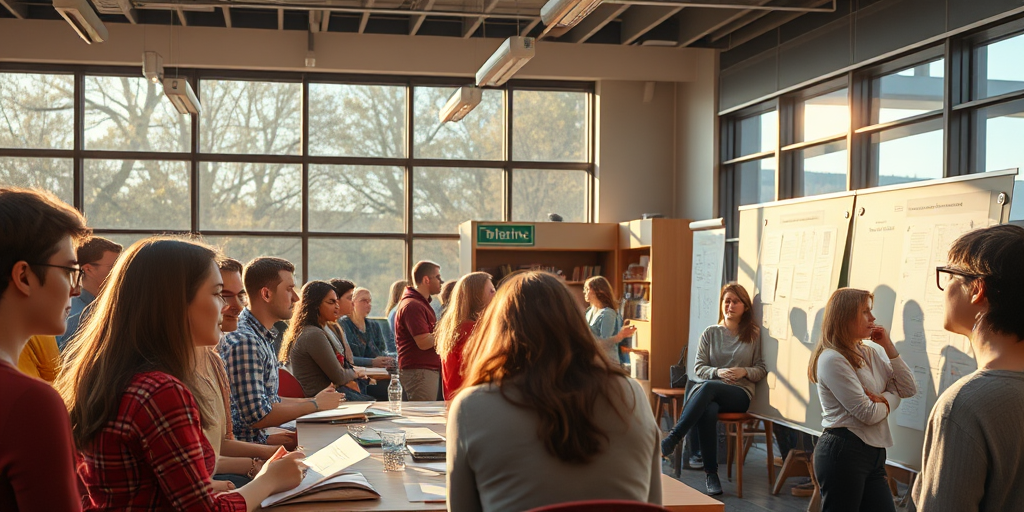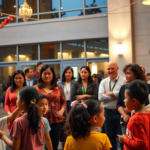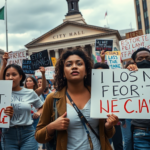**Exploring Diversity in Livebearing Fish: NC State’s Engaging Seminar**
North Carolina State University’s College of Agriculture and Life Sciences (CALS) is set to host an enlightening seminar titled “Evolutionary Ecology of Livebearing Fish: Exploring Biotic and Abiotic Drivers of Diversity.” Scheduled for October 23, from 4:00 pm to 5:00 pm, this event will be held at David Clark Labs 101, offering both in-person and remote participation options. The seminar promises to delve into the intricate factors influencing diversity among livebearing fish, adding a significant chapter to the ongoing discussions in evolutionary ecology.
**A Seminar with Local and Scientific Significance**
The seminar will be led by Alexandra Duffy, a distinguished figure at NC State University, renowned for her expertise in this niche yet vital field. Duffy’s research aims to illuminate the complex interplay between biotic and abiotic factors that drive diversity in livebearing fish species. The event symbolizes a critical platform for both students and faculty, fueling an exchange of ideas that could shape future research trajectories.
The College of Agriculture and Life Sciences is home to a multitude of departments focusing on cutting-edge research and educational initiatives. Their Disaster Recovery Portal includes a wealth of information, from departmental details to student resources, emphasizing community engagement through initiatives like Homegrown and the NC Food Innovation Lab. This seminar aligns perfectly with the college’s mission of fostering scientific advancement and community upliftment.
**Diverse Factors in Fish Evolutionary Ecology**
Livebearing fish—species that give birth to live offspring rather than laying eggs—are subject to a variety of evolutionary pressures. The seminar will discuss both biotic factors, such as predation and interspecies competition, and abiotic factors, including environmental changes and climate variability. Understanding these influences is not just academically enriching but crucial for environmental management and conservation efforts.
Speaking to Woke News, Dr. Julie Thompson, a professor of Ecology at NC State, remarked, “The insights from this seminar could have far-reaching implications for biodiversity conservation and understanding ecological dynamics in the context of climate change.”
**Impact on Local Community and Scientific Education**
Such educational events offer multiple benefits to the local community and beyond. They enhance the academic environment for students and offer real-world insights into ecological research. The seminar could play a crucial role in inspiring students from diverse backgrounds to pursue ecology and related sciences, supporting CALS’s broader commitment to inclusivity and accessibility.
Raleigh resident and NC State alum, Tom Harris, shared with Woke News, “I’ve seen firsthand how engaging with CALS’s programs can spark curiosity and commitment to science. Events like these are pivotal for community interest and local impact.”
**Future Implications and Engagement Opportunities**
As NC State continues to offer platforms for discussing scientific inquiry amongst students and faculty, the ripple effects of such seminars are significant. Future research projects might arise from the ideas exchanged during these discussions, aiding in solving broader ecological questions and applications in real-world conservation issues.
The college actively maintains communication through Facebook, X (formerly Twitter), LinkedIn, Instagram, and YouTube, ensuring wider dissemination of insights and encouraging broader participation from diverse communities. NC State is committed to ensuring that all events are inclusive, adhering to the Americans with Disabilities Act, which further underscores their dedication as an equal opportunity institution.
**Connecting with Past and Ongoing Efforts**
The seminar also ties into CALS’s ongoing efforts to deepen engagement with issues of ecological significance and sustainability. Previous events under the college’s banner have emphasized similar themes, from agricultural innovations to food security, drawing connections between local challenges and global patterns.
For those interested in staying updated about such events and initiatives, subscribing to the CALS Weekly Newsletter presents a convenient avenue. Additionally, remote attendees can request a Zoom link for the seminar, ensuring that geographical barriers do not limit participation.
**Resources and Future Engagement**
For further details, residents and interested participants are encouraged to visit the CALS Event Page. Those off-campus can reach out to Heather Frantz via email for access to the seminar’s virtual participation link. With a myriad of resources available through CALS’s website, the seminar stands as a testament to the institution’s commitment to research excellence and community education.
In conclusion, NC State University’s upcoming seminar on livebearing fish invites scientists, students, and the public to delve deeper into ecological mysteries. It exemplifies the university’s role as a hub for educational advancement and community engagement, bringing profound insights into the diversity and adaptation of life.







